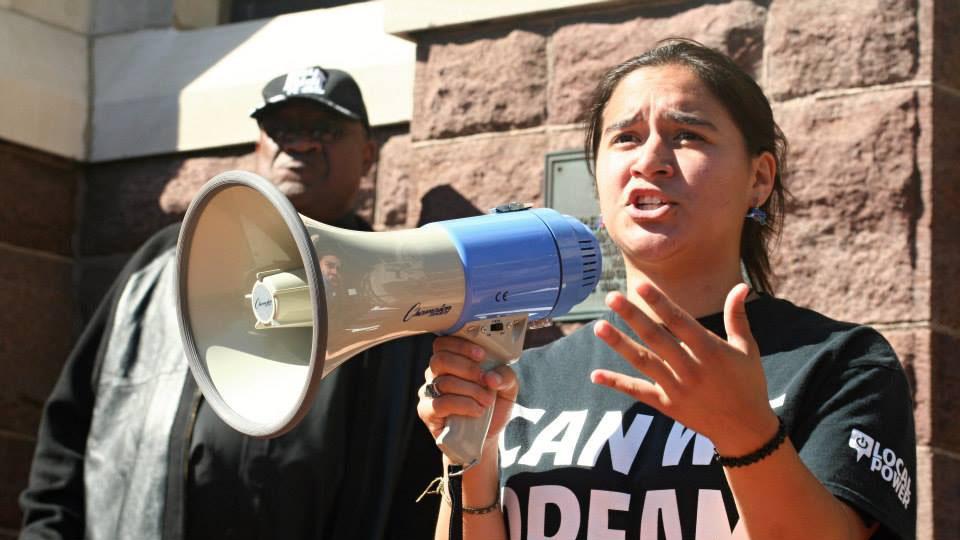Obama’s expected immigration announcement is being greeted with mixed emotions
Sofia Campos speaking at a a rally in Ohio. Campos, a student activist, helps lead DREAMit, MIT's undocumented student support group. She says the White House's announcement today will impact many undocumented immigrants but won't help her own family who remain undocumented and in the US.
Sofia Campos was in her final year of high school when she learned that she was undocumented.
"It's not an uncommon experience," she says. She was filling out her financial aid paperwork, preparing to attend UCLA, when she was asked for her social security number. "My mom just looked at me with these really big fearful eyes and said, 'You don't have one, none of us do.'"
Campos, now 24, did eventually go to UCLA and is now a graduate student at MIT. She’s also the co-founder of DREAMit, MIT's undocumented student support group. Campos has been on the frontlines of the immigration debate, rallying across the country for comprehensive immigration reform.
Tonight she'll meet with other undocumented students like herself and watch as President Barack Obama announces executive actions to provide relieve for more than 3 million undocumented immigrants in the US.
But Campos says not everyone will be thrilled with this news.
"We're going to be celebrating for those that are included, but we are also going to be crying tears of anger and sorrow for those that are excluded. So it'll be a victory, but it'll also be bittersweet victory."
"He is not going to provide anybody legal status, that is something to clarify. The only thing he is going to do is provide an extended relief to certain people, and it's going to be a limited number of people," Campos says.
Campos and her mother, who is back in California, are among those immigrants who aren’t expected to gain from the president’s new immigration action. The White House’s action is expected to provide relief to undocumented parents of US citizens or green card holders, who have been in the country for at least five years.
Campos is able to stay in the US because of the Deferred Action for Childhood Arrivals program that was established in 2012. DACA allows young undocumented immigrants, who have been in the US for a certain period of time, to apply for deferment from deportation. Every two years, that deferment is eligible for renewal. DACA doesn’t provide legal status, but allows young undocumented immigrants to attend school or apply for work authorization in the US.
The White House’s announcement is expected to also expand the current DACA program by eliminating the age cut off and the residency date.
Tonight we will be currating reactions from various immigrants, legal and policy experts. What are your thoughts on the White House's executive action? Join our conversation in our Facebook group: The Global Nation Exchange.
